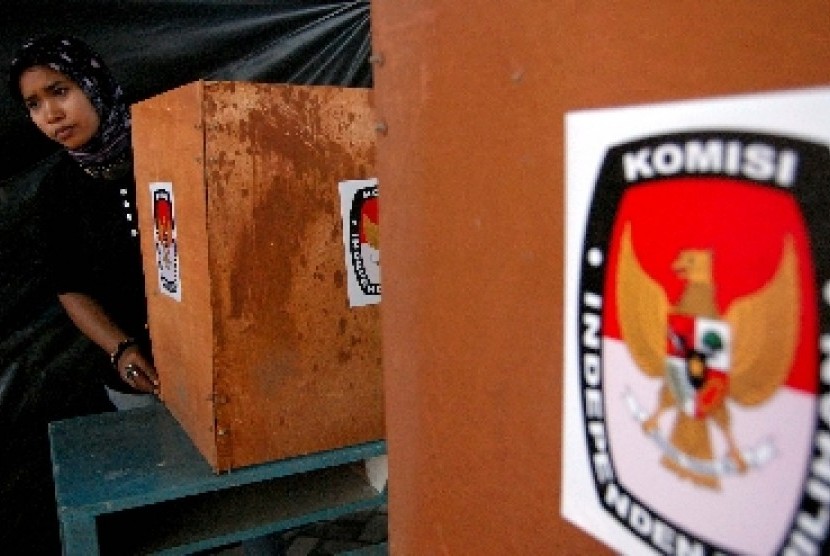REPUBLIKA.CO.ID, By: Erlangga Pratama (Student of University of Indonesia )
Since 2005, regional heads, such as governors, mayors and regents have been directly elected by citizens in five-yearly local elections. For the sake of efficiency, the government planned to hold simultaneous local elections in 269 regions this year and hundreds of others in 2016 and 2017.
In fact, not all planned local elections were implemented. General Election Commission (KPU) postponed local elections in five regions due to unsettled legal disputes. However, no one could deny that Indonesia has succeeded in implementing the biggest simultaneous local elections in the world. Then, the regional head elections were held in eight provinces and more than 260 regencies and cities on 9th December 2015. The local elections would continue in 2017 and 2018 before Indonesia could carve out history by holding presidential, legislative and regional elections on the same day in 2019.
The implementation of simultaneous local elections in 2015 has been facing several problems, such as invalidity of voters list, money politics, black and negative campaigns, non-neutrality of government officials, and decrease in number of voters in several regions. Another problem was, some regional head candidates who lost in the elections, unwilling to accept their opponent's victory.
In fact, rejection of simultaneous local elections in 2015 had been predicted by several academia, observers, and mass media. Simultaneous local elections were vulnerable to cause conflict and required security from the authorities. However, we should realize that our democracy provided a way for those who has spirit of competence and high integrity to run for regional positions.
Why did the incumbents appear as winners at almost all local elections 2015?
According to Association for Elections and Democracy (Perludem), from 538 candidates of regional heads registered, 278 or more than half of them were incumbents (former regional heads).
The reasons were because the incumbents got many advantages. Their access to regional budgets allowed them to serve the public to gain more votes. Their frequent appearance in public, also their appearance in media, guaranteed their popularity.
That's why political parties tended to support incumbent candidates instead of spent time and energy to build new potential leaders. The political parties were mostly reluctant to invest for uncertain returns.
Besides that, tendency of political parties to choose incumbents, has been contributed in leadership crisis in the country. It was because, political parties have responsibility in generating national and local leaders. Quality leaders would put interest of their party and group after public interests, combat corruption without compromise, and protect minorities.
Many problems but still successful
Regardless of technical and administrative obstacles, this year’s local election was truly emerging political sovereignty. It was giving no more room for political oligarchy, which often dumped people’s voices.
Indonesia's first simultaneous local elections showed that voters were rational in selecting regional head candidates based on proven integrity. Therefore, the political elite in Indonesia should cherished the result of local elections.
The results of simultaneous local elections 2015 also showed, voters were convinced that they got firsthand and original information about the candidates. This progress indicated, our democracy was growing to be more mature, moderate, and peaceful. Furthermore, victorious candidates were inseparably to their ability to promote their local features.
Of course, we need the President and the entire elected regional heads in the local elections 2015 to consistently pursue nine-priorities in Nawacita, which was assuring the “presence of the state” in fulfilling citizens’ rights.
One of the challenges for new local leaders who was elected at the local elections 2015, was erasing intolerant policies, developing infrastructure, improving bureaucracy, and coping with poverty and inequality.
Although local elections 2015 has many problems, it still could run well. Indonesia's local wisdom and mature democracy brought solution for the problems. It is time for Indonesia to face global and regional challenges, particularly in Asean Economic Community (AEC).
There is a reason for Indonesia to celebrate the successful of simultaneous local elections 2015, because it proves that our democracy has been improved.


